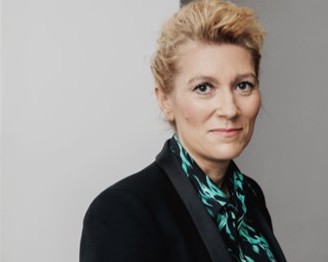Luxury conglomerate Kering has unveiled a new dedicated biodiversity strategy with a series of new targets to achieve a “net positive” impact on biodiversity by 2025.
This strategy includes the launch of Kering for Nature Fund to support the fashion industry’s transition to regenerative agriculture. It outlines steps to not only minimize biodiversity loss across the group’s global supply chains, but also support nature and create net positive conservation.
“This is Kering’s inaugural strategy dedicated to biodiversity, which showcases how we will play our part in helping to bend the curve on biodiversity loss,” said Marie-Claire Daveu, chief sustainability officer and head of international institutional affairs of Kering.
“It is one of the first of its kind in the sector, and aligned with best-available scientific thinking on how to protect nature and integrate biodiversity into business operations,” he said.
Kering is one of the leading luxury groups worldwide with brands such as Gucci, Saint Laurent, Bottega Veneta, Balenciaga, Alexander McQueen, Brioni, Boucheron, Pomellato, DoDo, Qeelin, Ulysse Nardin, Girard-Perregaux, as well as Kering Eyewear.
Green is clean
Kering said the strategy encourages the prevention of biodiversity degradation, promotion of sustainable and regenerative farming practices favoring soil health, and the protection of global ecosystems and forests that are vital for carbon sequestration.
Alongside its previous environmental commitments, Kering has set up new biodiversity targets, including three overarching goals:
- Kering commits to have a net positive impact on biodiversity by 2025, by regenerating and protecting an area around six times the total land footprint of Kering’s entire supply chain, all the way back to raw material production, within this timeframe
• Kering will convert 1 million hectares of farms and rangelands in its supply chain landscapes into regenerative agriculture by 2025
• Kering will protect an additional 1 million hectares of critical, “irreplaceable” habitat outside of its supply chain by 2025, through programs that support biodiversity protection, carbon sequestration and livelihood improvements.
“The strategy is all-encompassing and spans Kering’s entire supply chain,” Ms. Daveu said.
“This means that we focus not only on what happens at brand-level, but we go all the way back to the farms, forests and fields where raw materials are produced,” she said.
“We also launched the ‘Kering for Nature Fund: 1 Million Hectares for the Planet’ to support the fashion industry’s transition to regenerative agriculture.”
 Marie-Claire Daveu, chief sustainability officer and head of international institutional affairs of Kering
Marie-Claire Daveu, chief sustainability officer and head of international institutional affairs of Kering
Per the company, key Kering initiatives in sustainability include:
- Supporting the development of Science-Based Targets (SBT) for biodiversity, in close partnership with the Science-Based Targets Network, and aligning sourcing decisions to the Science-Based Targets framework.
• Developing a number of regenerative projects, such as the program already in place in Mongolia connected to Kering’s cashmere supply chain, which is implemented in partnership with the Wildlife Conservation Society.
• Partnering with the Savory Institute to promote the regenerative production of raw materials in Kering’s leather and fiber supply chains that come from grazing systems, such as wool and cashmere.
• Collaborating with peers through The Fashion Pact to identify concrete actions to prevent future biodiversity loss at an industry level, and develop ways to measure impacts on key species and ecosystems.
• Developing a “primer” with the Cambridge Institute for Sustainability Leadership (CISL) and consultancy Biodiversify on how fashion companies can build a biodiversity strategy and transform their relationship with nature.
• Working closely with organizations at the forefront of biodiversity conservation and science, such as Kering’s partnership with The Intergovernmental Platform on Biodiversity and Ecosystem Services (IPBES) to support all areas of its work to strengthen the science-based framework for better-informed decisions about nature.
• Supporting The Explorers, a global media platform building a rich catalog of Earth’s natural assets for awareness and protection.
• Collaborating with different sectors that influence Kering’s supply chain, such as the food industry through “One Planet Business for Biodiversity”, to identify cross-company projects in regenerative agriculture.
AT THE END, Kering’s focus on sustainability and supporting biodiversity makes good business sense.
“Given the extent of biodiversity loss across the world – and the alarming scientific predictions about the future – we believe that we have a responsibility to respond and to take the actions that are urgently needed to support a transition to a ‘nature-positive’ economy,” Ms. Daveu said.
“Business has a serious role to play here,” she said. “Increasingly, it is also becoming very apparent that biodiversity conservation also makes good business sense: we rely on healthy ecosystems to produce the natural fibers that are used by our houses. Therefore, when we protect nature, we protect our own supply chains, too.”
{"ct":"cTnGhByxbQjljKMGDnKnwvSoUX8Av8YM4jhg+VzGkahivQ5ykVQWPourE56Tf5wmBLAwW+oVvKBGJklQmSEi4DXs\/anP9H3bcNEslfG1o4uKv\/WpzMas1it9Yz1Nrl8rO1qEqOos0f2jZnGgwwswbGjbtamIXJt8PTVlByYKstfFaVDaxt4MEB5H53bOC5vyuyIv5xApjbxsg8fJSTRzrcyzcQsH283niq\/QLpytxh6FqkAX9GUMFFr4\/0KsyQs0CM72Ps+jZBRl6m26HU9l\/D0MWc1PTJahwzUt9PMVR+uIPZ81QDwBm7r1hA34efmoVtLY95FyIT19jGmSt++LjKMOjCx9vjDn4iRH9OnzC828XgO9iHzvnUx\/tqx7RnUAFUDjinpXGNoCYpxswUYyRJJ66VTmn0V7VVV5MgwzYDLHcxWrwwUVKP+CC0mKwxy6i1tqvu2XTJJz98X2XJYSR85yk4+uK4hX23i17Kg9Me0M9V2ho2R\/yHvMRretCie+B+DmseXD39008Fc7rs23eQJJ2juWIYg+EpoB6ZvPLipFgJBNCXSk7g\/aXEsnJOdvsS2ZolTmwS9LUvoSX88dxzMU97Z1aOd5fQZdQ4w0Y+ug4d25cez9IVJwrmCRH+h7lTHMSvE5tNHkqjV\/mAkUiIEdvWxY38iAGt\/RoJpQhSDPVO1CBwJfuZgx8ScG+Fj7yJTfdv4gK25C34zIu9mY5ovkayK6cEY5FnnlraAh0rKFw+w5Eu6gx2mVW232ZRRNMb39+UkE3TVTLrEWV65Z0uUtY9wP09h4ulat+LfWy4J\/OmaSgXbdAgTBLsnxylCcGFulMvF0GYtIRIkxqsLj701gHhYIHtWIfOzZMcMP7E1EbyJtDn4E1Ksr8Fu+7imYLW+ifUgeWucVcPvRf55dHEMvKVEe7MBuwqn4Zm0cTYE6Q5StTe4CkeKWIbVLJvpBsuOb2cXyJ2HH86dZMo7etnD6IeY1zCJmXAE5lDoF\/Bhal6vkjqAIhWVJHGrXzA7dl+693W0ayb53VnSPMFnchlYI3MZL69cA+Snu65phfVHImBu5EZ8e+0afbUrggWenSctoVo857ciKo2pH7aqbQArh5t52z9cvQcxwmjcmNN27GxHBYZJS5tuCdf9pBIVV8uVWp7t6ii26DHaUy0j06u4OmAMQ4cdXV18fr4IWMK8XbGCTWjHgdERibnvj+TluC3EG7EWZhwUm8+rl64t3shefhKPVTQnUhj9b2LSp3hKSYGMGAnC6p2daDYDNoBP6+ClXDkPwVi0xZt8PSBtbqU80X\/S5eNtOA0Q0rzjZ3Qn9uaPEUISIpLrvAW5a3iMtC0w10oe+eJ9P+YxNu9mFTHx8spdSxDfwByFdcc9CFo2+PkFIC\/uzSfwl9AR3TVaO9vQ8Wsk78G7zIiivqKngBPPpl64oZS4dsmZOinG53SjwN1uZNkY5J7G7G2aWea3KjCZ1byWXiJIR0sh5WLk5p8ZSuLI8yaogGlFPuX1n2GkShFWi9bYWcP7UCuBmDmLOL5BNkxitimT4QDpiMV67bj4iVVYl\/B\/WZoIfQA01oumcN1I\/2MVX\/C3orb0MyM8vA4aYhlinIR473etDY+scHcwR8nJVSBQNsYju6eioMY3FS2\/1Nv0sz\/n0KGI3wu9vUtazQi8USEHGeXeXMeCFcjUWijdDV4qRStSy96SXKdYRgXxP9TX7VWBf3StI6CsswnVesr5pRhq8w0yy80nFGPpxdPyzJG15MV+Zd2uY1usOoc4cMNg3lMqw3JGMhBIIfEt8kO8Bdo7KXDhBfPv9zMYcTKg6I+owWJXsW6f+stXQaI76sBLOLXu9ZnwPEm0ssmTdB9\/gvePjGlHOvbZMVzQgF\/M7WNrhFebh19h2U2wd2VwC9M006iZv0GlLiZ3x48i2KU72jGlbVozgvHzv8ov0+k\/j5vQyQPasQ6g06pkpzq2ha3TtrXHqi8wLSPPWbO5pzYzCiGJAQ8KFcw2FUdfRtrFC2vOysGbBXO\/+DEeohqidwZsqXyZf3w88CJCsbY5oqDXMfjfpGQP9VWVNav9ogxnua1PGCT6ipkhKnNgXwW8hfFy5mp\/RL6t6gCHdS6onM3LXw9ni6YrpEDDQ1S6IsogPXuPO2AHp0Ajb9eCT1IufbdRIZA3D+cpBH2wUsm9UNVlGfsO8ZBq0+ZAGpT6cVenNqyXiaL+Qq6C4YaH9vj+ssExGQI4yapmLab4IJq57CTnlaVXDVOrpMG4Ra\/loqRHCRJaZo5OKQvaZwHpeBWHdhd+4pzIWaoWTqrFKHxvJVyoaauyoK5dYSXX4mb6BEzdA6klUwQSrlNXCJPBIydye8oD59DmG2x1lQUHWAcOROh3hjvgpYZsNVCJHIZqvLQ6IEan4Q5hupA6Q5\/KzPzxqUyotQpbNfzmIbUOPAeW\/kvUUB0qilD2ixdQ08p2Obyl7F05xYFe0+r9si\/aOJ6JjwWxwyNinQ40vmC4FiDgmoKIvoUYFi1RElIZa37ZF5ui1YPaR6w01Y+9QnULY3x6VsF+rXh6iQ6CR84Rsx3FIKLr8m8n8jmNps8E5D5oh1irUA6gy44ot1yz2a\/HkgIOYJJ6Yg\/0XK1V\/oB2UpT4gr879MXdQDU52S2a1QApBlmN14UjVjvSIJh6ZPtY4Xv3CaxZpjDXhalbBuispSWIqqfkkbv+TC8Rgo7nniCWpLNCXXBn7UJ+8b1+5Gb++QmmaXhfPcW17n1dRhE22aT7RFFK1oTOgiRl8BwJReLNpjOYBbF\/Vn0eZbMCiCK+MmiOWmKOLOzPt07jjAa9sx98TMr\/wx6N9\/YJb5s3hRQk41rdfVwN6B\/JCZIFPlMxf6m4KVtR70OcGESFpPG8cM1z4B87Qxoc0r7ex4dlrYyenQ5QX2UHtXRS9Ad9BzROs5r1wceYXU5iPGj3+YZT1o1f5\/3fiuEhOs37rpYwN7M\/T3u5nzj8FgT2tkPBbOqdAFG4eV+pTBasGe3Udgd\/1fCBXMmMDthpE44ep3D4h3+FFGtOFl7bc+o4AiI5FuLHiSk3CUOBN1hudRJrkodkMiySufXJbRDQRJOv7TPBu9uULOT5Hiqn2ZR3gbvZc5yS1vzaK7kbNQy\/rH8giF\/6f8p\/Q1RWAwO76UZYXGP0vRFP2JoCsR1evXfMCNwjAo6GSrytF0hZnHzPfmg\/kHTQc\/ZnYjYIC\/2hne7e7Yn\/MowjruESr+xugCbpml3h1FWQUzoUiKK1sA2y8C775N2QYDiPnSvpKL6ixt0oDAvYZF+rNF+OCFExSdNph3B7MszdWN0b1btKzyqmBASHFrCtPMenN\/5hS2asjTM29JoH520Lc8rd+T5\/acX+eWhFtvT3WRTUkqlMnhCrrOcKIbwlZPgWiYu48eMo9fbcHtzvXb1YZ2\/E8f+NOzt3kclhqDXX7CoevWhX\/MmlMpdLWrjNSdySgPbgEaNYvTXY\/4ebzwT2M+uJjPkdDPHz0fOlj0FJluB+nGFzrPD6Bx0rqlF3LOMl\/bgLZngFG3IYgeovQBuWKtR2Wf8xEIe5byyxVtCdBttOvVJMFdm\/t\/HOnZRVHQbdGVZHEoeNsKu4efVuR7aDsj8Dt2yJGt5sHoGJOhhMBphiejuKd4LoTElrrzRbGp8oWu3gNWtVu1FwS7bPL\/O32cUVheImKbS23dgaSp\/v0YxuN4vBovCrw8OSrvrWpfT9riBCYzrfkiRB0eE85pUgx4xxBLdoND8HQdJ8Wp8kCi\/laeHugmxkSuqfAibpE9WS3q0CIGscl6z6gLnlwJCol4sRbsbMzoFXGZVF2PhuDIW0sOY6X8DkaKK1npOrA3m+j6MXDPsBv3dd7bVcI+woprqW\/TE3nF6MHk\/GnrY5DmMEXpyozeZwQ0SEVoCDg+vSyrANJ9UOGr8zc2JrUsPYQbfnQbvSFweI7wcWak8b4bJpJEEEOx4dFxLUC4ybnoUesDZBA8YGzOrws16Jn+gtANVarxh0p3+pfgTRk+T5F7keaRW0CS+05jlyWCCyR2XC+CtOr1mjhEzBSi6wNdpB7HlI7S2n20g2w\/YS7vlnIdYiGjJdSE3k0Qhkw6mUVOP+LjxRA827f2WLzrYuwiTnV13fnzV1aFI3fUVTayUa0zLuZh0SAM6t20w8Oy+rzoEU8CvtnZn+FfIFjPEIY2J6AKm9c11dQhflD7r2zO7F90zz9Lmo+tJnc2qn\/todcENJKBexcGSQ0eoGSWFP9gQ+0ihGD2seBH\/S9SmC4WbNgm6Ll2gshCbQvEvIVukghwuXrV43ETSdz1TK7JhzdzHIVD90B+hBH9dYga57anr4DD\/B2GcHpXPWu\/HPpEISIr5DTk23gFnrvEimZXF7G+b\/VqaMEQNMEKpwYbOrtdv6HRjLAo9tYYrXoAZbhgPQXAVV0BmCh+NczFmwJ7u\/Fi07pzCKM8vHLWP1G2UFLP64n9N39OAf6JkH6L8Z5PAGos2je4X6nbDylp\/+Vxu1NfQnuMAESCha5VHILVTm0GYjs7PR\/kJ8im9Sri2BMaMfhwU7IjMrWthqKCpzlpnJX\/JoxNgBJKUp0VXEJhncg3QfPkOGqpFFmHvBCwNJAVTG7xPynn7kawWC5VDJJEHaZ\/DaNx3ctpkMAMQF+iAGEV1uhdhtvb0LBoFJ+4P\/BaJQfGuw5oD7Y8OZPsNYjXWe7muIhOTeBh82G7KkU2Upjaa9gppEYWuurcL\/6GIHShp1emQgLVDL9a4f0+XGEhq7RUgf62GrttRs5pPy9YXruJoAi+LdA7ElbkVVsISKf3mKm3v39oJycN8Hr\/IM8nU8uSCZEtvOEf2ikUSstMm0Tp7OpLWzXZmB7FRryElw3Fik2fzeqExp8EZzlQmcWEua1zNdoGbICVcxKuj2Tn3ZtXlKo87vR0ndTY51TWm38tnOpHjuBPYak6jWB4uayFqGSec4ZbmRAHEoVUP32zAXdEa+AvLjfN4099h3G6aGsjH51xIjX7LCxtPEbfr8PFlbiK5NZlKomtrGUAy\/GB3uYeYNlcnRWWjLzFYnoWKCIdIKmGfWjEDhmcG02IHLEmtHky2s55h3rPRjmL1UsubgB1Jh1HXjyoqC9Szgc1jb1MPgt2n6PMZOrc55MbaaSz6tm+iBk\/fJC9QZgWoERKHjS3p7hM52NrZ43Rv\/KZ0UThQzwgpxIt6QSPeMp\/SeMbwx8ZRjhI9onmeoQyqUdkzosq33rkvnMj6cEKTq9fMYVO6NKCn2jOJ6wlMLQxUjNsiZnqXBwnL967yTS8+aPwrykG1mGWoucR29F7zPnXxVkfH3lVu7hHmUCD6291pKydbMK86fGigkcxLlei\/45iOwbQI1mlYvygRF2bNXqQajXps10MSlhjf45OGDhS0KfOBwET4+0si8AI4rCls\/jcPmlmWh+tLwon8D5NyDOqDoYF0w9zWTQSkkGmevlehOAPKi+deU9WLXZJj\/ZxpsKgIYnx6wQZPhpuomhRqwz+ILaN9Gg69lLf2TDECbjlcbMo1J5mkwtHFkR7i5+SrazCg82Djceo9Dag5c+CA0VScXAJE0jnIKv2yuc1IKyvPQrJC1\/b9WlZx\/4Y4cwbOeBgrUHfhYNQhkciD5rGw0nQSiXZgF2D9YCzwYzQKjF8H5YD\/mngvhVgL88HKsvK8\/WgLbGZJMdaldLCxip0PaAcWapvXzYkpGG4z5+BLeSQsRMTmPQWaa9npyH5gOCfliCFB37LH2wbGSqxsYGqkLgYdnJQLa\/a2RMNUNg2kvnOO1\/jgmh0pYBcyGw7JenM3oUEmT4iGPUP2uWuMqrTo3dU6lx91WlfJrjHlvFGAhhUeWyd06ayy5JnwPPjWhrPaLUQf1BKqBfZq\/TiNrKRfUKMIgGbHJleBLd3OQhSLn\/69janmFHEMJGoQcMtPJdDGTb1qyW01JlMO+06WNaMEz\/w3MYTLxFORgxQ1XiuBSkHD3+aJxQ9GTJyftS7KzVbNOnR\/9I3hQoFiwk2IOFbH6yWzgRNXS1jf1Ihnjgd7x6heXa\/a+tJJaA28rHrSAbIv3Z8yKl9zgYLWCNzpCBwNTLHMotYSwZtoGIwyjBCQzyagrnI10TvMDRbSXWNSLxvZFDNmWxBr3OGTxSBxcm61SHKwUISZ+1VZotURj7I0WlH8W\/2Rglg3aE5g+z4dtpY+O9pc3AgI2XHCAS8zIfvc8w1pMMlhJDcKEiQCj23lTNcyVIH6lszQb5QkvCvuE4sfLXKnCgXOfT1mk7xOyKdQ85yYVp2jBDutmkqYd8s2Jmgt5nSRJHgrysa2AoicNFDuhM5nhKS+dIY58ECnUUnxuD++4IDW47RLjRKNcf+rjiZwpN4olFSWpRwb6hU4wCALLawyUjxmlnhQvLZYekhrxJV+BlDN1SkENQa593clW2LhX0mX2EKz44EcSMqqTUtOMhjb\/GeendMi49qMHYvnczZxLR2IlGp\/Owcea11kyt1cT79y8Be6jXqgYQLRbpKZq5JQt8iJGkTfGrkMciKfz4QGqJZppmI1pLr1F0EOmaPrOsQiUs7U8j6586DwBjwvImFdjtvoj3R8pxjzibNM8N0fqITYLgjgmPcjI8RUPdB0GciBCBXsvohZt9UocKKRLEOt\/yZRpa\/8Cm7vUD20kpyUTxUESNMOvfp\/61yTjjk2d0puV5fU2da3kbN+4muLnMJ6\/l7XrK7viNNlHL\/qNDzdmSSE2igd2fcIkzz9S\/aTTDBU5l4qR5yMoiDbxGjzWl3lUykz5w\/WOIJKrfQYupBasxETLG4F2RcOu95DYLOvpVv5eIaNPODTPeAWNR9zi7kwCRws1ddZnWPAU7rUbCYNnKDF6CJFvw600JlPmKNEgyoJcve9jy50oxOoPYXoM+huMssxdSolra3EYSPKrWffhFkt6\/lyniT0L+iMwF3SIGE1tmqOiJAzfuYJhgD2YSDxmVP2XPo\/1sJKksiQfINOGubsjtvoinwJc+sD7ZAsMU5ylD+pk4Vjn6KyHs\/pId3+KluAJbBe4yLcVdm\/7ZFnKilwhIarAIxkaUTWi7FcBIgBrMA4eD7h00IYJ95idsGwWwJitkd\/AS6Kqp6MEx3q2AOAOQHZGYFbNLYi8euUydQtSJKwXbWwkwmYd7ne2UDB4KUav+UxcXLIFIf5eZjuLwIQW+bmMM2MOur7zB3N1l9Rtk+s5V1K21are\/dpnSYI2zeVzVu1TLbXvyibK\/O3bDOA4h2TFJRBM9VhxY9FkJHXaXbBmCk4525iUQufe2O2NVEvBEhry0eEIjC8alNO\/6UI1V91H\/STU+GAiDMsx0ysItrG\/01xFbnw+i67TH6bJ2XlU1Qskqhz1un\/i6ReQSJPWy34fSkfGKlmUmSjsG6HbIOCkRJ8gkZp1rY1he8WDZUve3TnO0jGDF1fGATacsZpDPpRUZ5LKUEX5ZTb507qHWAFoCZMXW60zBpZ8OwKO\/S+YMHpSruWbPSJVDTtuHl18bsxncBqrDeP21ONYejtGtU3MXIxPkqH114sTou8CyO5DtKfzl8orZTZimVKFJP08hRpugUnuipPTQDVOI5d14R4QD8+m4NyQ4cZFxYEqfL7hb69xaCqoi0z2NMvsg4va8d3DDFNudYZkxb800T3XYdiB\/628\/Udkbs3txbwHhzWf9L3x\/hnk+v1pxDefJLStoRRPNh+9pR+gSAKbOC5lqk4WwuvXaSxphIMo6AKk8GZ07j8UccpnBwXVsAEO9dgHpaNvzujJcAnIqRa6MkMjYJIQOZXhBFOa13vIS\/UfcL0QxvYFIXli6U2KsGDR\/byDvY2YqUePsHD2ZG+YBj4rhqPcvmG4ZRhrPycS72xfcRFq6tQVX0\/qmm6GSDJLSiOb0mtwSKVmJ30op1aN0DzVUcHh0Ux9qi7R4f+4kApX7PiuCJko4Mr7ttxLnb5DsaJ+0aT6K888jIdviah4riX9\/k\/zkKF7sZ34smwWCC99DKS9uRZSlAvOx3XNCQxefQN+f8dCmF3S9771RH1cC2cYLLLWp6F0opBKzrEy4PUhzxrpfJdbO6XoNvsIMxAo5YDuy430auRcEroF91Qy4sOH7eSNk7poNDNcz4gQnRZKMwWubDY3NxRDv4WzQAJROb\/6k6gcoq2LA4+KTsMzFz6BeL8NDLAAsqUXZsuYzRi6CxaK1m\/gKxXxOVZKkVx6QqRK1GY0p1O4s2vk26UqTfOfrcetSvZK36GqXbESk3hUQCb3Rb+qZzHTx2md57fdc4tf7+Sj+oRVqaNRVTChVRWUjEgC4SrLVkVH\/2qM0aT7TXmpHrsKstGPEKdTqyrQlNaW5","iv":"803087810a70d60ea45f4c398a646f7e","s":"e04f09264b17b09d"}

 Biodiversity is intrinsically linked to the fashion business. Image credit: Kering
Biodiversity is intrinsically linked to the fashion business. Image credit: Kering
 Marie-Claire Daveu, chief sustainability officer and head of international institutional affairs of Kering
Marie-Claire Daveu, chief sustainability officer and head of international institutional affairs of Kering